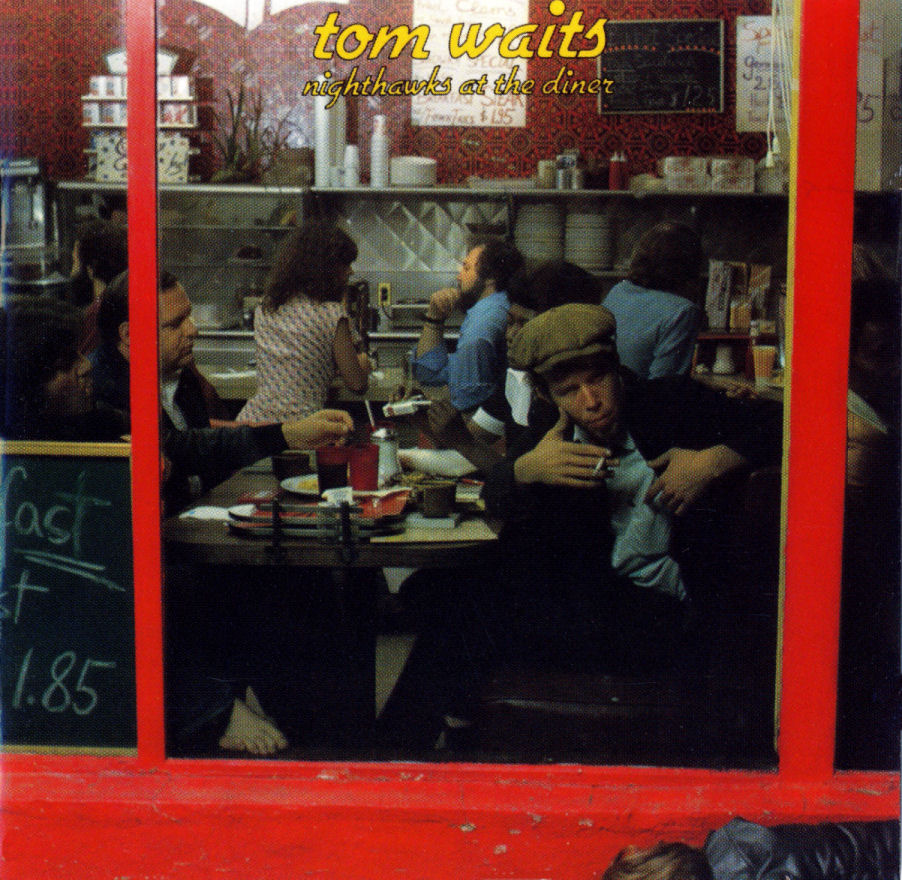There are countless constants in life: continuous streams of established cycles that work like clockwork and never cease. One of America’s greatest stories is the amazing music that Tom Waits has continuously gifted. Fortunately, Waits’ music has been an unremitting stream of consistent greatness – delivering exceptional sounds and stories that have made him, arguably, one of the supreme songwriters of all time – with every decade, since the 70s, ushering in an innovative era of superb proficiency. There are not many artists quite like him, none as distinctive as him at least, and fine reason enough to offer a primer on his affluent music.
What exactly is the kind of music that Waits creates and crafts? He still employs either quiet piano and guitar, or both, on almost every single song but he’s far more developed from where he started out on the affectionate Closing Time. It’s an exciting amalgamation of affinity for American standards like blues and jazz (genres that perhaps act as the two pillars of foundation for Waits’ celebrated range), a muscular blend of rock, an incorporation and love for spellbinding storytelling and a spectrum of other styles. The magic and enchantment with Waits has always been his ability at presenting the most idiosyncratic characters and delivering them inside of memorable stories that stun with a myriad array of sounds and tones.
Commencing with Closing Time, Waits instantly consisted of poignant, honest stories of life around jazzy standards of thoughtful balladry. The crooning style of “Virginia Avenue,” with its muted trumpet and minor-led piano line found Waits sounding rooted in American living. He had perfected his singular growling vocal chords by the time Nighthawks at the Diner appeared – basking in the light of songs like “On a Foggy Night,” where Waits enlightens the crowd to his humor, charm and wit – and tended to his expanding ability with an enthralling journey into musical progression.
A few years later came the breakthrough 80s with Swordfishtrombones and Rain Dogs garnering many new and impressed fans, while probably annoying a few of the old ones. Waits was beginning to revel more inside the realm of brilliant concepts and stories that began to shape around his tenacious ear for melody. “Shore Leave” displays Waits in a no-holds-barred commitment where the relaxing vibe feeds off his forceful snarl and later “Blind Love” is positioned with a country chug and Waits’ recently discovered roar. But even as time continued to pass him by and many of his counterparts whom he started with were now gone, Waits rolled right into the 90s and finished them off with another career highlight in Mule Variations. On “Cold Water” Waits bears it all, hooting and hollering like the old blues creators of before in his incomparable demeanor. He’s like the old boxer that just lost the big fight, lost his favorite girl the night before, crashed his car on the way home, and arriving to find out the electricity was shut off so he got a ram-shackle band of mates together to stomp and sing the night away in someone’s basement.
Waits would waste little time returning with greatness in 2002 with the double-bill of Alice and Blood Money; the former featuring one of Waits’ all-time best, most adoring, most beautiful ballads in the title track. He released a three-disc set in 2006 entitled Orphans: Brawlers, Bawlers & Bastards where each disc separated fast, slow and experimental songs in a unifying of old, only just found and some all-new material that highlighted a fantastic assortment of music. And through it all Waits showcased how even decades into a vast career, his voice was still capable of wondrous skill with a fitting growl for every song. There was the Elvis-shuffle luster of “Lie to Me” and its hip-shaking stutter, the grimy sludge and cluttering bang of “Puttin’ on the Dog,” and the bluesy, biting stomp of “Walk Away.” The latter demonstrates a Waits most can positively remember him by: swooning and filled with mesmerizing dexterity, the music sways from side to side like the finger-snapping heard throughout and the entire time, Waits confidently spins a web of incredible storytelling. All of the aforementioned songs pertaining solely to material off the Brawlers side of the compilation.
Just recently, Waits released his seventh studio album, Bad As Me, an album that rightfully will be regarded as one of the best of 2011. There are new bands and artists rejoicing in music now, there are old hits that are now clear misses and plenty more defunct stories than aspiring new ones. And fresh off the start of a new decade, here’s to hoping we can enjoy another decade of blissful Waits music.


Words: Bryan Sánchez

